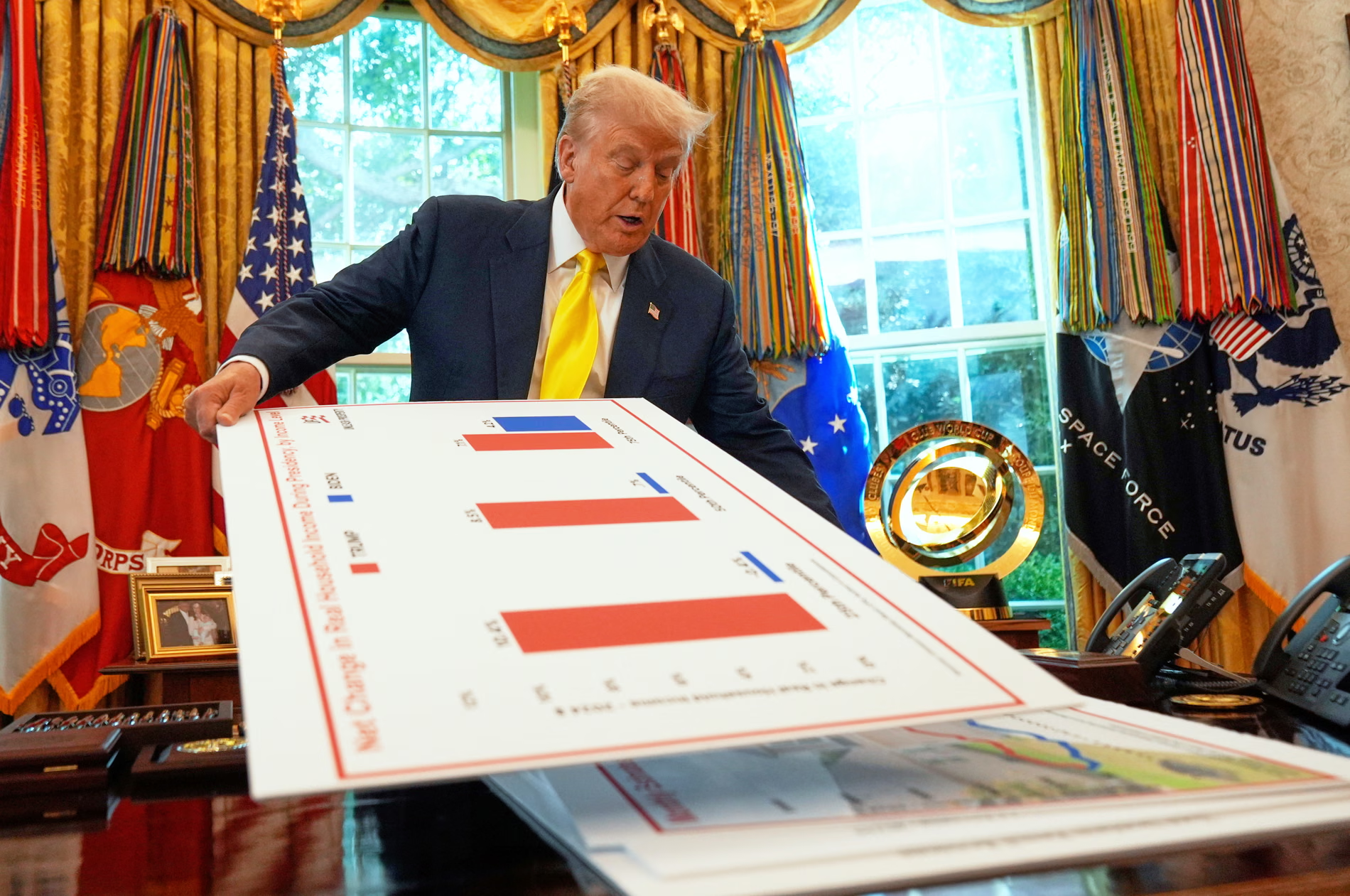New Trump Visa Rule Sparks Panic: Are Obese and Diabetic People Really Banned from U.S. Entry?

Social media across Ghana and Africa has been buzzing with shocking claims that “if you are obese or diabetic, you can’t get a U.S. visa under Trump.”
The viral message has triggered confusion, fear, and outrage — but what’s the real story behind it?
The viral claim
From WhatsApp broadcasts to Facebook posts, the rumor insists that the Trump administration has ordered U.S. embassies to reject any applicant suffering from diabetes, obesity, or heart conditions.
One voice note making the rounds warns:
“They’re now denying visas to people who are overweight or have sugar disease. America says they don’t want people who will burden their hospitals.”
But a deep dive by Nsemgh Fact-Check Desk shows that this message is not entirely true — though it’s not completely false either.
What has really changed
According to reports by CBS News, The San Francisco Chronicle, and Spectrum News, the U.S. State Department under the Trump administration has introduced new visa vetting guidance.
This guidance allows visa officers to consider whether an applicant’s chronic medical condition could make them a “public charge” — meaning someone who might depend on U.S. government support for healthcare or welfare.
Conditions such as obesity, diabetes, and heart disease are now flagged as potential risk factors when assessing immigrant visa applicants — those seeking to live permanently in the United States.
But the new rules do not amount to an outright ban, and they do not apply automatically to tourist, student, or business visas.
Fact check: Can you be denied because of obesity or diabetes?
Yes — but only in rare situations.
If the applicant’s medical condition is uncontrolled, or if they cannot prove they can pay for their own healthcare, their visa could be refused under the public charge policy.
However, applicants who can show:
- That they are managing their condition medically, and
- That they have financial means or insurance to cover costs,
are still fully eligible for U.S. visas.
A senior U.S. immigration attorney told Nsemgh:
“This isn’t a medical ban. It’s an economic filter — they want to ensure applicants won’t rely on taxpayer-funded health systems.”
The backlash
Health and human rights advocates have condemned the new directive, calling it discriminatory and cruel.
They argue that it targets people with non-infectious conditions, many of whom manage their health responsibly. Critics also warn that the policy could unfairly disadvantage citizens from low-income countries like Ghana, where healthcare documentation is often limited.
Others, however, defend the policy as a measure to protect U.S. taxpayers and strengthen immigration integrity.
What this means for Ghanaians
For most Ghanaian visa applicants — especially those applying for short-term travel, studies, or conferences — there is no reason to panic.
The rule mainly concerns immigrant visas. Even then, consular officers make decisions case by case, not automatically.
If you have diabetes, obesity, or any chronic condition, you should:
- Carry medical reports showing that your condition is under control.
- Provide financial evidence or sponsorship showing you can cover treatment costs.
- Avoid misinformation — always confirm visa rules on gh.usembassy.gov.
Nsemgh Verdict
The viral claim that “obese and diabetic people can’t get U.S. visas” is misleading.
Yes, the Trump administration has tightened medical and financial scrutiny for immigrants, but there is no blanket ban.
Applicants are assessed individually, based on health stability and economic independence.
The bigger picture
The policy shift signals a tougher U.S. immigration stance — one focused on self-reliance and economic fitness.
Analysts say it’s part of Trump’s broader effort to reshape immigration through stricter eligibility filters.
Still, Ghanaians are urged to rely on verified embassy information and not on viral WhatsApp messages that twist the truth for clicks and fear.
Headline image caption:
U.S. visa applicants queue at the Embassy in Accra. Officials say the new health-screening rule targets only immigrant visa cases, not tourists or students.

